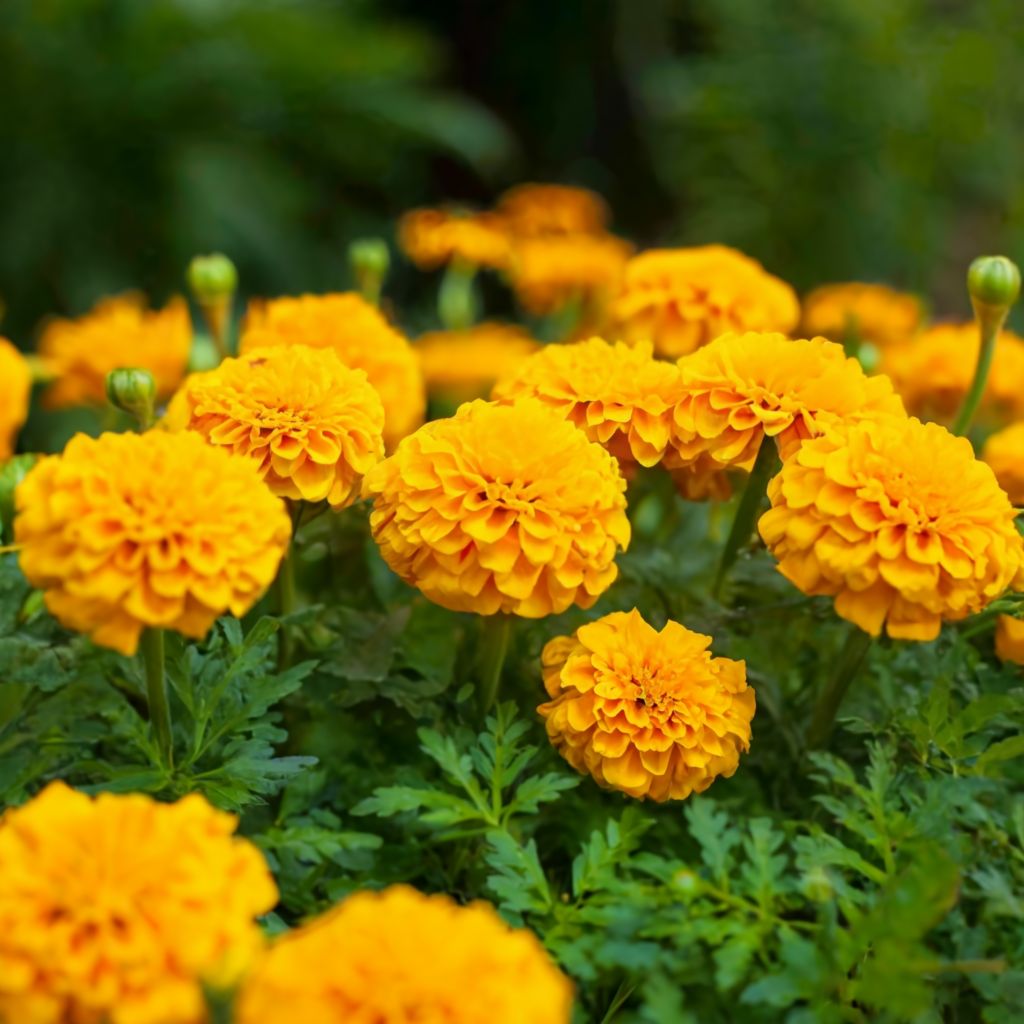
Companion planting is a time-honored technique that involves growing different plants together to benefit one another. Rather than relying solely on chemical pesticides, an alternative and eco-friendly approach is companion planting. By strategically intermingling flowers with your vegetable plants, you can establish a natural pest barrier that protects your crops while enhancing the overall beauty and health of your garden.
In this article, we will explore 10 companion planting flowers that can be paired with vegetables to create a natural pest barrier. By strategically interplanting these flowers with your vegetables, you can enhance biodiversity, repel harmful insects, and attract beneficial ones, ultimately promoting a healthier and more productive garden.
10 Companion Planting Flowers for Vegetables
Marigolds: Nature’s Pest Repellent
Marigolds are renowned for their ability to repel a wide range of pests due to their strong scent. They emit a fragrance that deters insects such as aphids, nematodes, and whiteflies. Planting marigolds alongside your vegetables acts as a natural deterrent, reducing the need for chemical interventions.
Nasturtiums: The Ultimate Trap Crop
Nasturtiums are not only visually appealing but also serve as excellent trap crops. These vibrant flowers attract pests like aphids, caterpillars, and whiteflies away from your vegetables, effectively diverting their attention. By sacrificing a few nasturtium plants, you can protect your precious vegetables.
Calendula: A Beneficial Insect Magnet
Calendula is a captivating flower that attracts beneficial insects such as ladybugs and lacewings. These insects are natural predators of garden pests like aphids and caterpillars. Planting calendula close to your vegetables encourages these helpful insects to take up residence, creating a harmonious ecosystem in your garden.
Borage: A Natural Pest Repellant
Borage is not only an attractive addition to your garden but also an effective natural pest repellant. Its bright blue flowers attract beneficial insects like bees and wasps, which prey on destructive pests. Borage also improves the overall health of your soil, making it an ideal companion plant for your vegetables.
Sunflowers: A Haven for Pest-Eating Birds
Sunflowers are towering plants that provide shade, support, and food for birds. These majestic flowers attract pest-eating birds like finches and sparrows, which help keep populations of insects and caterpillars in check. By incorporating sunflowers into your vegetable garden, you invite nature’s pest control agents to take up residence.
Cosmos: Natural Nematode Fighters
Cosmos not only add a splash of color to your garden but also combat nematodes, microscopic pests that can damage the roots of your vegetables. The root exudates released by cosmos plants repel nematodes, effectively reducing their population. Planting cosmos near your vegetable crops acts as a natural defense mechanism against these destructive pests.
Alyssum: Beneficial Insect Attractor
Alyssum (Lobularia maritima) is a low-growing flower that releases a sweet fragrance, attracting beneficial insects like hoverflies and parasitic wasps. These insects prey on aphids, mealybugs, and other harmful pests. By planting alyssum alongside your vegetables, you create an environment that entices these helpful insects, providing natural pest control.
Lavender: Repels Moths and Fleas
Lavender is well-known for its aromatic properties and has been used for centuries to repel moths and fleas. The scent of lavender is highly effective in deterring pests like cabbage moths and fleas. By planting lavender near your vegetable garden, you can create a fragrant barrier that keeps these pests at bay.
Zinnias: Butterfly Magnets
Zinnias are vibrant flowers that attract butterflies, making them a delightful addition to any garden. While butterflies themselves may not be pests, their larvae, like caterpillars, can cause damage to vegetable crops. By providing a dedicated space for butterflies with zinnias, you can protect your vegetables from the voracious appetites of caterpillars.
Daisies: Encourage Hoverflies
Daisies are charming flowers that serve as a beacon for hoverflies. Hoverflies are effective predators of aphids and other sap-sucking insects. By inviting hoverflies into your garden through the presence of daisies, you create a natural defense against these destructive pests.
Incorporating companion planting flowers into your vegetable garden is a wonderful way to build a natural pest barrier while enhancing the beauty and diversity of your space. Marigolds, nasturtiums, calendula, borage, sunflowers, cosmos, alyssum, lavender, zinnias, and daisies are just a few examples of flowers that can help protect your vegetables from pests.
